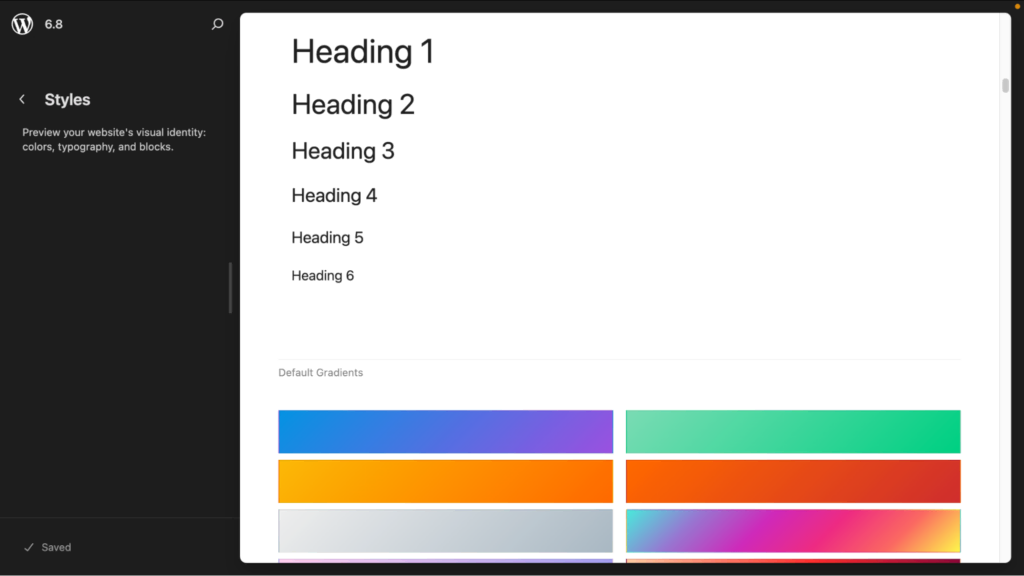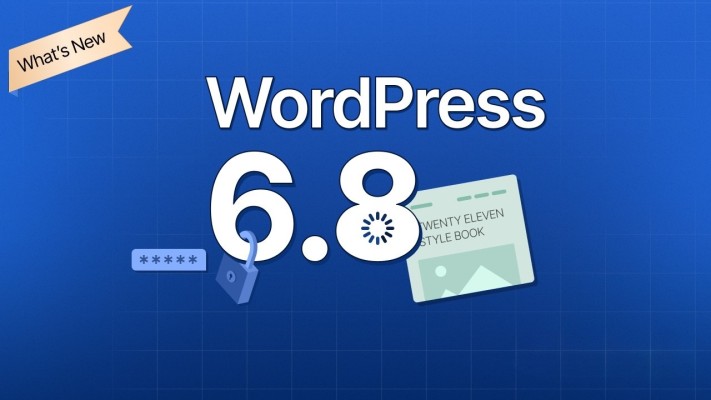
Discover the Exciting Updates in WordPress 6.8
On April 15, 2025, WordPress unveiled its first and only major update for the year with the release of WordPress 6.8. This marks a shift from the usual three major updates per year that WordPress has….
On April 15, 2025, WordPress unveiled its first and only major update for the year with the release of WordPress 6.8. This marks a shift from the usual three major updates per year that WordPress has traditionally followed.
Consider WordPress 6.8 as a refinement release. Many of its enhancements are subtle, focusing on code standardization to simplify the creation of plugins and themes. As the Gutenberg project surpasses its five-year milestone, some of the codebase has been modernized. With every major release, users can anticipate improved features, enhanced performance, accessibility upgrades, bug fixes, and fortified security, including a more secure login method for WordPress admins.
In this article, we will explore the new features and UI enhancements introduced in WordPress 6.8 using the default Twenty Twenty-Five theme.
Enhancements to the Site Editor
WordPress 6.8 offers a clearer perspective on the future evolution of the WordPress Admin. The Site Editor continues to evolve in both appearance and functionality. Block themes now exhibit a more cohesive appearance with consistent functionality across sections like Design, Pages, Templates, and Patterns.
The Global Styles have been repositioned to the center as an extension of the sidebar. This change allows users to effortlessly modify their style and see the changes in real time on the preview screen. Similar to previous versions, this panel grants access to the Style Book, where you can personalize colors, typefaces, images, and other block styling preferences.
Viewing the Style Book in Classic Themes
WordPress 6.8 introduces support for viewing a basic Style Book in classic themes, further bridging the gap between classic and block themes. However, styling capabilities akin to Block Themes are not yet available. For classic themes like GeneratePress, style adjustments still require the Customizer settings.
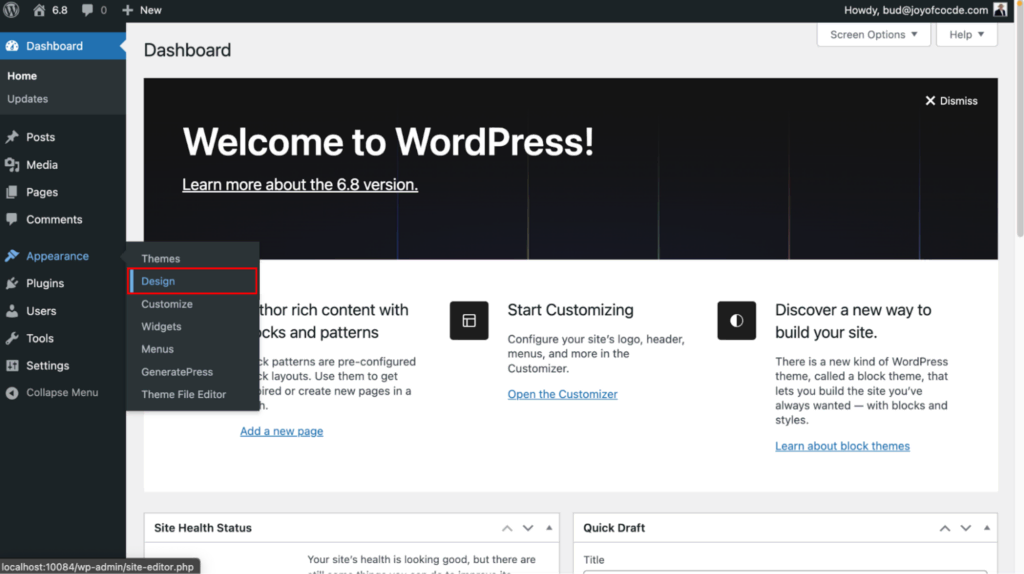
When using a classic theme, users will notice a new Design option in the Appearance section of the WP Admin. Selecting this option reveals two choices: Pattern and a new Style option for classic themes. This provides a design overview, though styling changes will be possible in future WordPress versions.
Improvements to the Query Loop
The Query Loop block, vital for displaying a blog archive, received significant attention in WordPress 6.8. Notably, a bug affecting sticky post rendering was resolved. Previously, sticky posts did not appear at the top of the loop in the editor, causing confusion. Now, sticky posts reliably display at the top during editing.
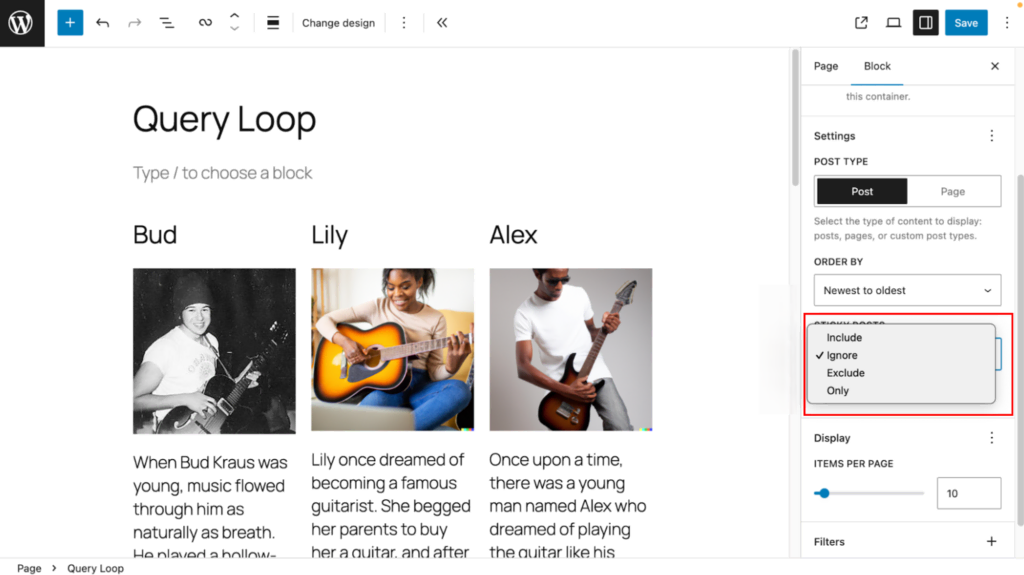
Additionally, there’s a new option to exclude sticky posts when necessary, found in the Sticky Posts drop-down menu. The introduction of the Query Total block, exclusively within the Query Loop block, allows visitors to see the total number of posts or pages in an archive.
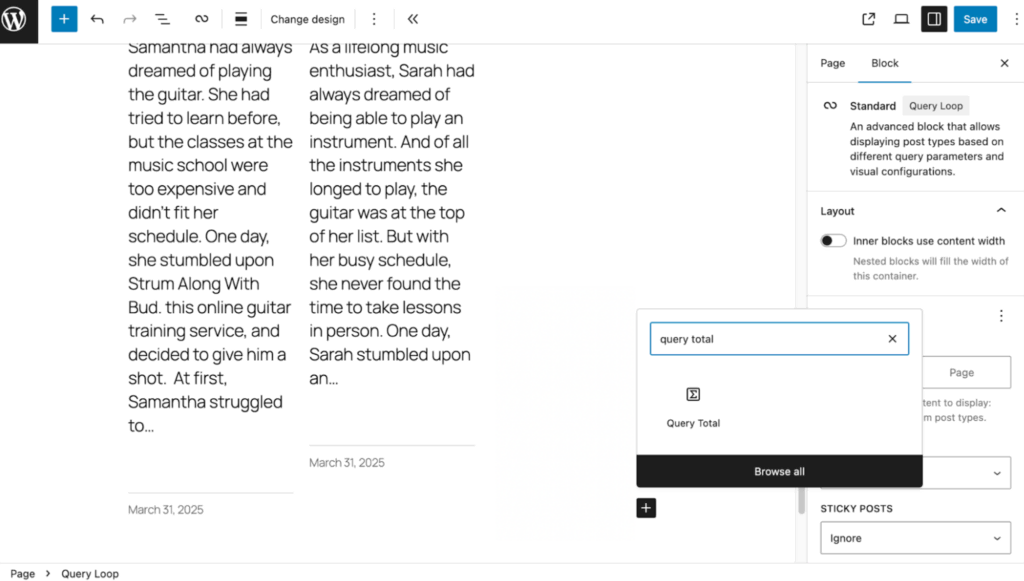
To use the Query Total block, ensure you are in the Query Loop block, click the plus icon at the bottom right, and search for Query Total.
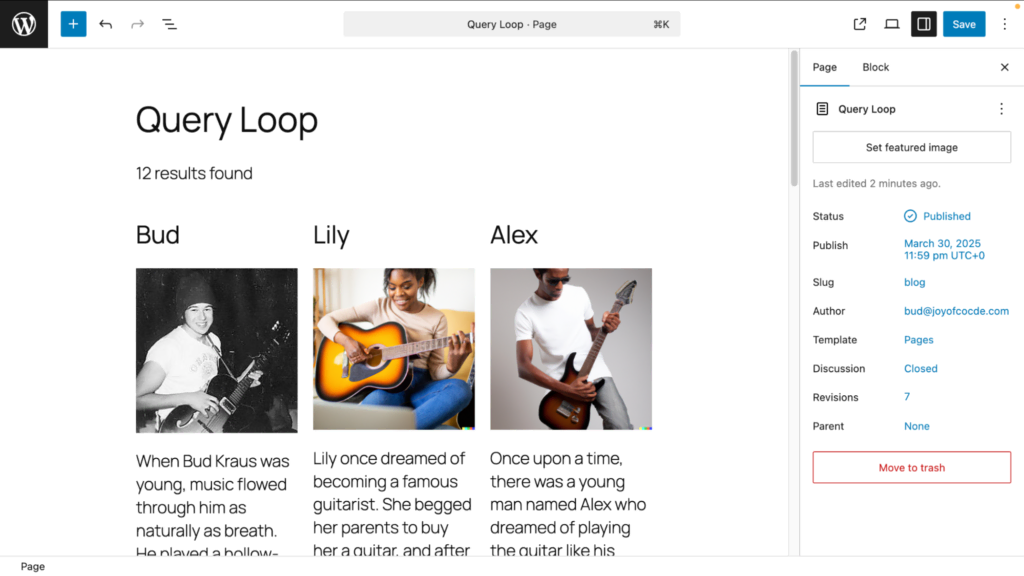
Resetting the Color Picker
A subtle yet convenient feature in WordPress 6.8 is the ability to reset the color picker. Previously, resetting a color involved selecting the default color manually. Now, a minus icon (-) next to the Background label allows for an automatic reset to the default color when clicked. This feature currently applies to paragraph and heading blocks, with expectations of broader support in future updates.
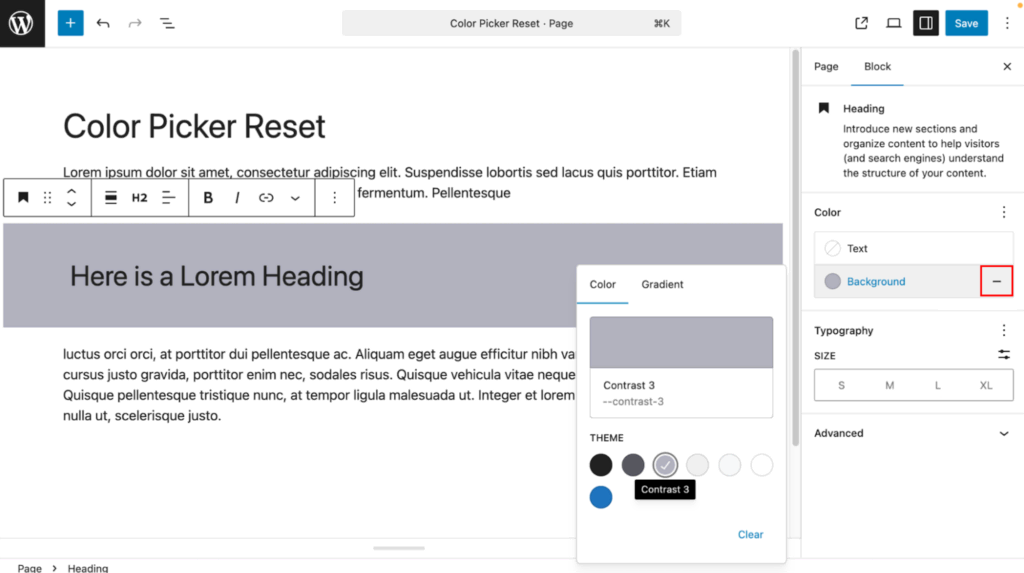
Setting a Featured Image
While setting a featured image is not a new concept, WordPress 6.8 introduces a streamlined method. You can now easily designate an image within your page or post as the featured image. By selecting the ellipsis icon in the image toolbar, you can choose the “Set as featured image” option, eliminating the need for reuploading or additional media library steps.
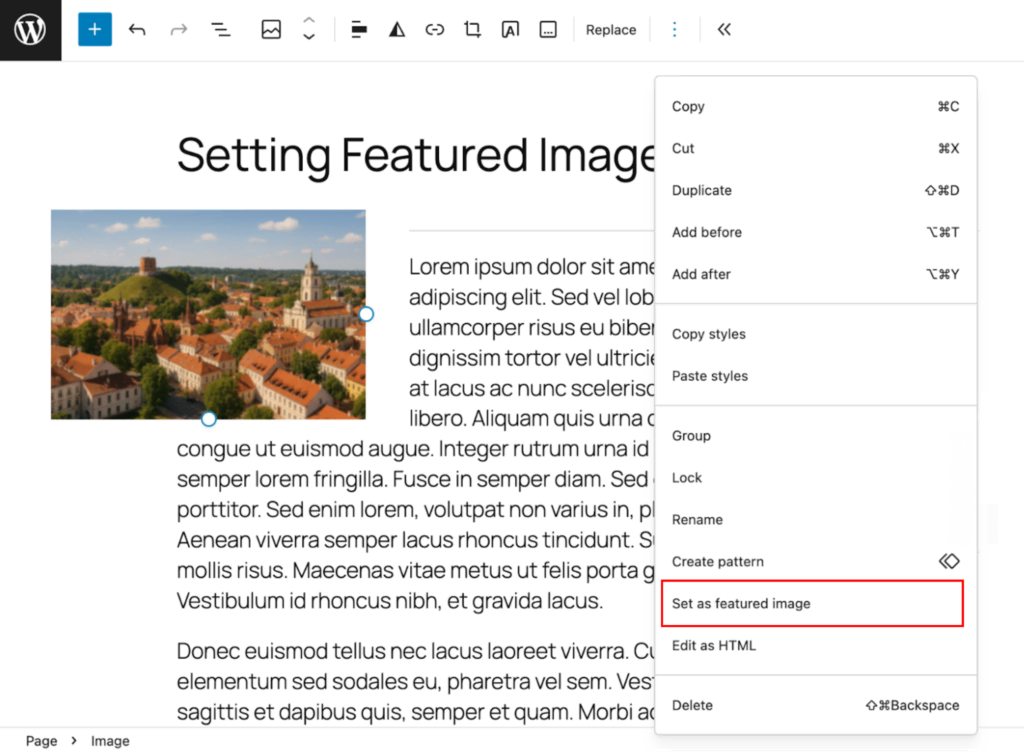
Additional “Show Template” Location
WordPress 6.8 introduces a quicker way to access the underlying template for pages or posts. This new toggle option for “Show template” is located in the dropdown menu, allowing smooth transitions between editing templates and content. However, this feature is not available for classic themes, which do not support the Site Editor.

Conclusion
While WordPress 6.8 may not introduce groundbreaking features, it offers numerous UI improvements that enhance the user experience, making it more secure, productive, and seamless. If you haven’t already, it’s time to update your WordPress website to the latest version.
For an optimal hosting experience, consider HostingInIndia as your trusted web hosting partner. We provide reliable and affordable hosting solutions tailored to your needs.

